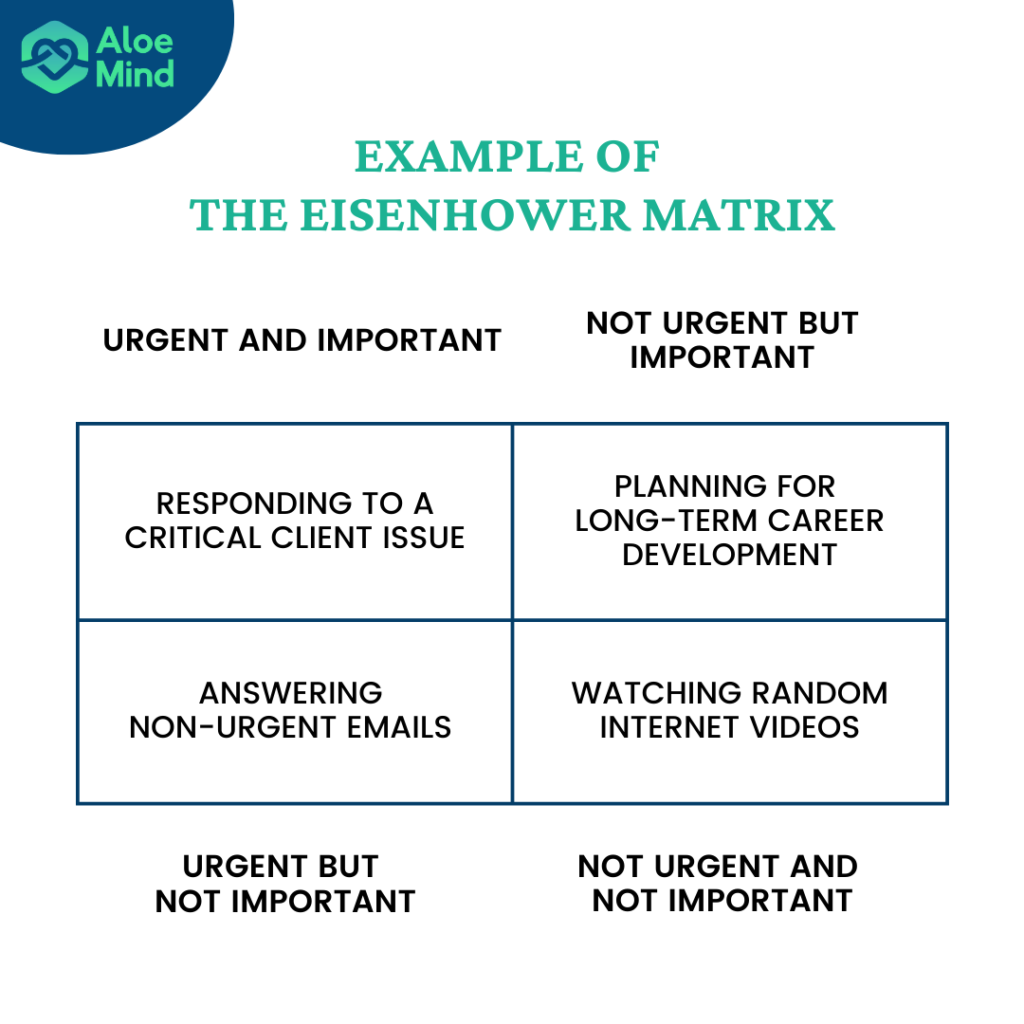What is work-life balance?
Some of us may think that work-life balance is about splitting time equally between work and personal life. However, work-life balance means more than that – it is creating rules to keep work from taking over your personal time and vice versa. Ultimately, this ensures that both work and personal life fit well with each other. Learn more on how you achieve work life balance!
Tips on achieving work life balance
Understand what works for you
There’s no universal way to balance work and personal life. Everyone has their own goals, situation, and interests. Take a moment to think about what’s really important for you and what makes you happy. Some people do great with a set schedule, while others do better when they have fluidity in their schedule. If you figure out your wants and needs, you can make your own plan for balancing your schedule.
Set clear boundaries
Making sure you have a good balance between work and free time means setting some important rules. Nowadays, it’s easy to mix work and personal stuff due to technology. Hence, it is important to decide your work time and your personal time. Don’t let work things bother you when it’s your personal time. And when you’re working, find ways to help you focus on your work tasks of the day. These boundaries can help you stop one part of your life from taking over the other.
Manage time well
Being good at managing your time is a big part of balancing work and life. You should figure out what task is really important and needs to be done first. Consider using techniques like the Eisenhower Matrix, which categorizes tasks into four quadrants: urgent and important, important but not urgent, urgent but not important, and neither urgent or important. This approach helps in prioritising on tasks that truly matter and avoiding unnecessary stress. Check out our example of Eisenhower Matrix!

Say “no” effectively
Oftentimes, we may worry about missing out or letting others down, so we end up taking on too much responsibilities and commitments. This may cause us to feel overwhelmed. Hence, it’s really important to be able to say “no”. For example, imagine a co-worker approaches you with a request to take on an additional project, even though you’re already swamped with your current workload. You can respond like this: “Thank you for considering me for this project. I’m unable to commit to that right now, but can we discuss how to re-prioritize this new project or find an alternative solution”. It’s okay to politely decline tasks or come back to it at a later time. That way, you’ll have more room for things that are important to you.
Nurture relationships and health
Maintaining strong relationships and looking after your well-being are key to achieving a balance between work and life. Building and cherishing relationships might involve keeping in touch with your loved ones, enjoying quality time, and working through problems together. As for your health, prioritize fitting in exercise, maintaining a healthy diet, and ensuring sufficient sleep. Remember to take short breaks for relaxation, and engage in activities you love when you’re not occupied. The goal is to stay connected and take care of yourself.
Get into your hobbies
Having a hobby is important to balance your work and personal life. Hobbies can help you relax, reduce stress, and concentrate better. Deciding when to do your hobby creates a clear line between your work time and your personal time, helping you manage time better. Additionally, hobbies also help you learn new things and get better at stuff, which makes you feel good about yourself. Having hobbies is like taking a break, making you feel better overall.
What happens if you don’t have work-life balance?
Health issues
If you keep working without enough rest, it can cause health problems. You might feel super tired all the time and have trouble sleeping well. Additionally, your mental health could suffer too, making you feel extra stressed and anxious, which affects how well you think and feel. This stress can even make your immune system weaker, making it easier to get sick.
Burnout
Burnout happens when you’re tired emotionally, mentally, and physically because you’ve been working without taking enough breaks. Signs of burnout are feeling really tired, not wanting to do your work, and feeling distant from it. It messes up how you feel overall, making it hard to focus, do stuff, and even stay positive.
Reduced quality of work
If work takes over and you don’t have time for yourself, your work quality can drop. Not taking breaks can make your mind tired and focus less, causing errors, missed stuff, and less creativity. Too much work can make you feel like you’re just doing things without really caring, losing the energy and excitement to do well.
Ready to take the first step?
Book the first therapy session with our qualified counsellors or clinical psychologists! If it feels right for you, go on and take the first step!
Book a session on our website, or Whatsapp us at +60 17-803 8384!
